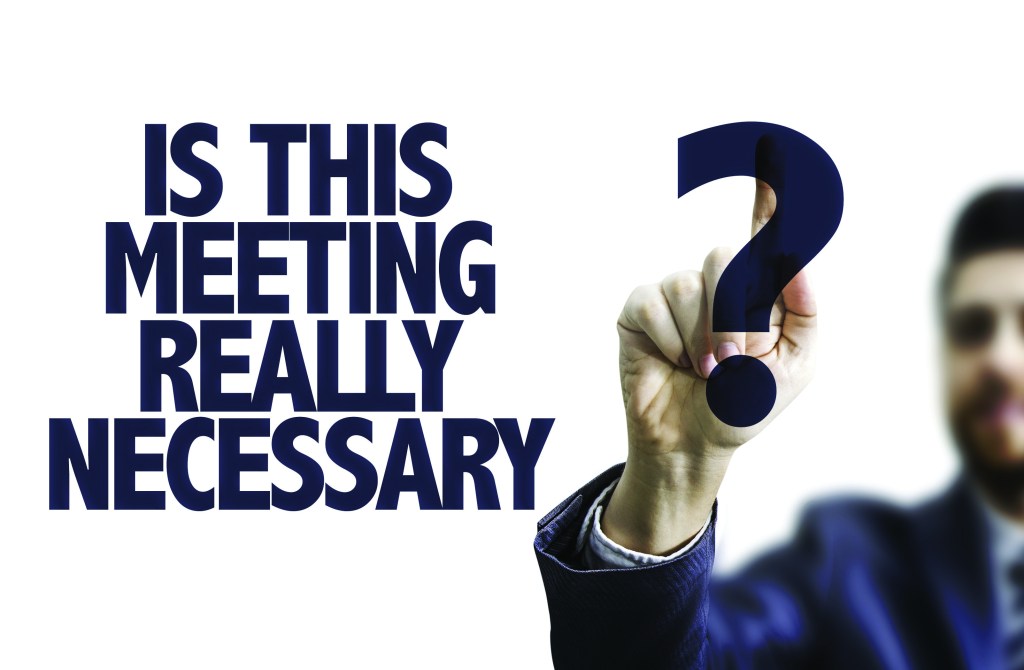Our lives have become full to a point defying logic – and our brains simply weren’t designed to cope. When did addicted to being busy become something to boast about?
The proverb “more haste, less speed” is said to originate from the 16th century but the message seems pertinent to a world in which being addicted to busy has become the new religion.
The problem is our brains weren’t designed to use every conceivable bit of time efficiently. And there’s more sobering news. Multi-tasking is just another term for not paying attention.
Craig Carey is a personal trainer and life coach. He says the questions we should be asking are: ‘What am I busy doing? Is it serving me or am I busy because society has conditioned me that busy is the holy grail of success and contentment?
“When we say we’re busy, it’s like self-validation – I’m doing well, I’m successful. As a society, we place judgement on how we’re perceived by our peers,” he says.
But when did we turn the whole of our existence into a to-do list and when did being busy become a competition? It gets worse because – assuming you’re brave enough to admit you’re not busy – along comes the disgrace of being labelled lazy or, perish the thought, unsuccessful.
“Being busy is not the problem. It’s the outcomes of being busy,” says Carey. “When I work with clients, I immediately ask them to address awareness and honesty. How do they feel? Is all this busyness serving them or is it just plain exhausting?”

The busiest people rarely are
Not only have we become addicted to busy, studies show we’re not actually getting any more done. Researchers asked people whether they’re ‘always busy’, ‘sometimes busy’ or ‘never busy’. Their findings show that, pretty much without exception, the people most likely to say they’re ‘always busy’ are rarely those who are.
Oliver Burkeman, author of Four Thousand Weeks [the average life span, assuming you make it to 76] addressed this in his BBC Radio series Oliver Burkeman is Busy:
“We think we’re busier than ever but we’re not; the people who think they’re the busiest aren’t and, as the years go by, this disconnect between whether you say you feel busy and whether you actually are is getting bigger. We internalise being busy as part of our self-image. When did never having a spare moment become something to boast about?
“There are two things going on. One, we feel we must work like mad to keep afloat. Then, staying busy is also numbing so we escape our difficult emotions in the same way people misuse alcohol or drugs. If busy has become the new religion, maybe it’s time we became heretics.”
Addicted to being busy
Mark Cropley is professor of health psychology at Surrey University. He studies how people switch off from work and, crucially, what happens when they don’t. He says it’s not the stress; it’s how quickly we recover.
“We know some people come home and think about work, becoming tense because they can’t switch off. We call these ‘affective ruminators’. Another group may be thinking about something positive or interesting they want to resolve. We class these ‘problem-solving ponderers’ – they like to reflect but don’t become stressed.
“And then there’s another cohort we call ‘detachers’. They switch off immediately they leave work. We do wonder though if they ever switch on to begin with!
“Unsurprisingly, those who can’t switch off show the worst health responses in terms of blood pressure, spiked cortisol, and sleep problems. We know failure to unwind may be associated with increased risk of cardiovascular disease [CVD]. ‘High ruminators’ – people who find it difficult to unwind – tend to show lower heart rate variability [a known marker for CVD risk].”

Crossing boundaries
What’s the basis of this march for some sort of misguided nirvana? Those whose job it is to examine our behaviour claim it’s partly fuelled by dispensing with traditional boundaries. Technological possibilities appear infinite, AI may be coming after your job and, of course, the boss expects an instant reply to that email they sent late Saturday evening.
Tony Crabbe isan award-winning business psychologist and author of Busy: How to Thrive in a World of Too Much. He says busyness is a choice.
“Our mantra has become go farther, try harder. Busy became a brand. It speaks to our self-importance. And when we tell people we’re busy we seek to persuade them in detail because we need validation.
“We can blame the world all we like but we’re choosing it. We need to learn to separate the number of things there are to do from the choices we make about how we spend time. The problem is not we’re busy. It’s because we’re never giving our brains a rest.”
One of the things that happens when we focus on time is we cram more into ever smaller slices. That leads to psychic entropy [a mental state where attention is pulled inward, we struggle to regain inner order and are hindered in our ability to focus].
“We know if we increase people’s sense of time their creativity drops as does their ability to perform complex thinking tasks,” says Crabbe. “It’s the sense of time pressure rather than a shortage of time that does this.
“One of the most effective things is to cluster tasks into lumps of crazy activity followed by focus periods. You’ll get a lot more done but also, and importantly – even if you do the same number of tasks – you’ll be much less tired. All this switching back and forth is exhausting.”
“One study showed we perform each task up to 40 per cent less effectively when doing more than one at a time. I don’t believe there’s such a thing as effective multi-tasking because you’re not truly focused on any task,” says Carey.
“The biggest drivers of this obsession are people pleasing, guilt, and perfectionism. We can deal with those. The danger comes if someone is ‘busy’ avoiding deeper emotional issues.
“The modern world has, in many ways, robbed us of our ability to be ourselves, and worrying what other people think is generally a waste of time. Instead ask yourself what you’re dissatisfied with and what you’re simply tolerating? There will always be things we can’t control, but there are also things we can modify if not dispense with all-together.”
Less is more
Tony Crabbe says the starting point is figuring out what you can do less of and identifying the stuff on which you want to focus.
“You might say I’m going to be great in certain areas – parenting, career – the stuff that matters to you. And you know what, that might mean you’re going to be a bit sloppy in other parts of your life.”
He recalls a four-time Olympic gold medallist telling him she needed to get his book, noting her life was chaotic. What he realised, however, was that had she tried to get her entire life perfect, she probably wouldn’t have got anywhere near the medals podium.
“When we’re busy, we’re constantly trying to do more and spending less time on the things that matter to us. That can leave us with a sense of failure and frustration as well as feelings of emptiness. Busy almost becomes a way of distracting ourselves from ourselves.
“Even in our social lives, we load on the pressure. We have status around the activities we’re doing with our children. I don’t think my parents ever sat up late at night debating the right balance of after school activities.
“The brain is good at dealing with stress in short bursts but it’s not a machine,” adds Crabbe.
“Stress is healthy, provided we recover. But we’ve got sucked into this machine-like behaviour as opposed to what the brain does best – think and reflect.”
Oliver Burkeman highlights the stark reality of competing for status in almost every domain of our life.
“The problem with never stopping, with constantly struggling to get everything done is, firstly, we never manage it. Secondly, we usually end up doing less – and doing it worse. And thirdly, by trying to make life as efficient as possible, we’re never mentally present to live it at all.”






